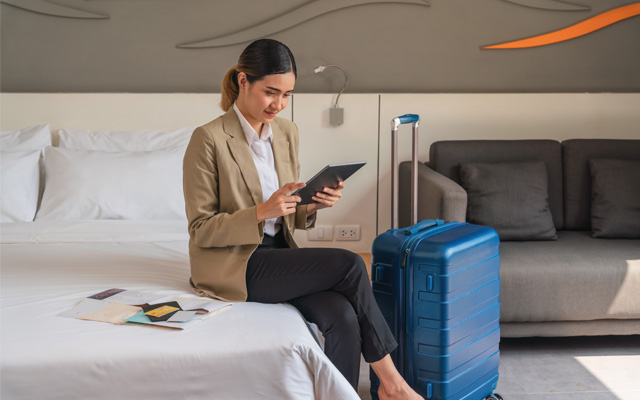Mieke De Schepper, executive vice president and managing director, Asia Pacific, Amadeus, shares her thoughts on why Asia-Pacific's road to recovery will be built with the help of technology and a dose of optimism

The travel industry has proven a tough nut to crack. Resilience has made it strong over the years and enabled it to bounce back every time it encountered a crisis. Travel management companies (TMCs) across the world – and particularly in Asia-Pacific – have used the disruption of Covid-19 to plan and transform technologically and culturally.
This is the overall learning after we engaged with a broad selection of senior TMC executives to understand their viewpoint on how the industry is changing and the road ahead – outlined in our recent e-book Rebuilding Business Travel – Insights from the global TMC leaders on the business travel industry outlook and recovery strategies for 2022.

Managed travel expected to take off
Across the globe, TMCs consider a shift from unmanaged to managed travel to be a major trend for the future of business travel – but nowhere more so than in Asia-Pacific. Historically, fewer companies in our region have followed Western-style managed programmes involving detailed policies or data-driven supplier agreements.
But the pandemic has intensified focus on duty of care – 68 per cent of Asia Pacific TMCs consider this the number one priority for their clients – and thus it may prove the catalyst that finally produces that transformation. This shift brings clear opportunities for TMCs in our region to further improve on their past, expand their content and service offering, and increase their revenues.
The importance of information
It comes as no surprise that health and safety information is considered the top priority for business travellers in Asia-Pacific. This was a viewpoint shared across the globe. And rightly so.
With so many rules concerning vaccination, testing, quarantines and continuously changing country risk levels, clear and correct information is imperative to build traveller confidence. TMCs are making themselves indispensable to clients by providing up-to-date guidance about restrictions and requirements for the destinations they are visiting.
Technology enhancements lead the path to recovery
While TMCs in all other regions see diversification into new revenue sources as their main strategy for the recovery of business travel, in Asia-Pacific technological enhancements came out on top.
Applying the right technology will not only help our TMCs provide higher levels of support to their corporate clients, but also contribute strongly to cost optimisation – ranked as the second most important recovery strategy in our region and seen as more important here than in other regions.
Technology will also be a key enabler to accessing new types of content and developing new services, which in turn will be essential for driving diversification – still considered a key strategy by a majority of Asia-Pacific TMCs.
Although the pandemic is still impacting our lives and our industry, TMCs in Asia-Pacific remain optimistic about the future. They see clear opportunities for success and improvements in a new world of business travel where TMC services and offerings – new or existing – will be appreciated more than ever.
To get more insights from TMC leaders in Asia Pacific and across the globe on the business travel industry outlook and recovery strategies, download Amadeus’ e-book here.
 Mieke De Schepper is executive vice president, online travel companies and managing director Asia Pacific, Amadeus IT Group.
Mieke De Schepper is executive vice president, online travel companies and managing director Asia Pacific, Amadeus IT Group.
The Dutch national has lived in Singapore for almost 15 years, and joined Amadeus in January 2019. She brings more than 17 years of experience in managing B2C and B2B businesses. Before Amadeus, De Schepper worked for Expedia Group, where she held the role of senior vice president and chief commercial officer of Egencia.
Earlier, as the vice president of Expedia Group’s Lodging Partner Solutions, she was responsible for growing and managing the hotel relationships in Asia Pacific.
Prior to Expedia Group, she spent 10 years with Phillips Electronics and held various global, regional and local leadership roles in product, marketing and sales.




















